Cystic Ovaries in Guinea Pigs
Female guinea pigs, which are also referred to as cavies, have reproductive organs that can become infected, plagued with cancer, impregnated, cystic and develop other problems if not removed. The ovaries, just like in human women, can develop cysts that can cause a number of issues, including pain, in your guinea pig but thankfully these cystic issues can be avoided with a simple surgical procedure.
What are Ovaries?
Ovaries are the egg excreting part of the reproductive tract in humans and animals. They are located on both ends of the "V" shaped uterus that female guinea pigs have and are also small glands that secrete hormones. These glands are very complicated and develop normal, important things including follicles, corpus luteum from the empty follicle, and eggs, but they can also create fluid filled cysts that cause problems for female guinea pigs who have not been spayed.
What are Cysts?
A cyst is simply a pocket in the tissue that is filled with some sort of material such as air, pus, or another fluid. Ovarian cysts are fluid-filled pockets or bubbles inside your female guinea pig's ovaries that develop when the follicles inside the ovaries don't release the eggs they are supposed to do. Humans also get many different kinds of ovarian cysts.
Why are Cystic Ovaries a Problem in Guinea Pigs?
The biggest concern with cystic ovaries in guinea pigs is when they burst, which can be extremely painful. A guinea pig is already uncomfortable prior to a cyst bursting and because guinea pigs will stop eating and defecating when they experience discomfort or pain, simply having cysts, even if they don't pop, can be life threatening if your guinea pig develops ileus.
Ileus, or GI stasis, will cause a guinea pig to die if it is not addressed immediately.
How Do You Know if Your Guinea Pig Has Cystic Ovaries?
An obvious symptom of ovarian cysts is symmetrical alopecia on your guinea pig's abdomen. This hair loss that is the same on both sides of your guinea pig's belly is a tell-tale sign that it has ovarian problems. Many owners bring their guinea pig into their exotics vet for hair loss thinking their pet has some sort of external parasite like lice and instead discover there is a much bigger reason for the alopecia.
Your exotics vet may be able to feel a large cyst or pair of cysts inside your guinea pig along with abdominal discomfort when they are performing a physical exam. Your veterinarian may then recommend an X-ray or abdominal ultrasound to confirm the presence or absence of cystic ovaries. They may also attempt to sample the fluid in the cyst by inserting a needle into the abdomen and into the cyst in order to make a diagnosis.
What Can Be Done for Cystic Ovaries?
The only way to "fix" cystic ovaries it by removing them. Typically a full ovariohysterectomy, often called a spay, is recommended as soon as possible for your guinea pig. Your exotics vet will spay your guinea pig as they normally would, even if it didn't have cystic ovaries, and this will get rid of your guinea pig's problems and prevent them from happening again.
What Other Problems Can Guinea Pig Ovaries Have?
In addition to developing cysts, guinea pig ovaries can also unfortunately develop tumors and cancer. The best way to prevent it from occurring in your guinea pig is to have it spayed. Spaying a guinea pig completely removes the ovaries if an ovariohysterectomy is performed.
In people, a hysterectomy is usually only done and not an ovariohysterectomy. This means only the uterus is removed in people but usually the ovaries are removed along with the uterus in pets. This is a routine procedure for any veterinarian experienced with guinea pigs.
Ovaries also play an important role in allowing a guinea pig to get pregnant. The ovaries release the eggs and can be fertilized if a male and female guinea pig copulate. Baby guinea pigs are not something most pet owners want since they require more time, space, and finances to care for.
RECOMMENDED NEWS
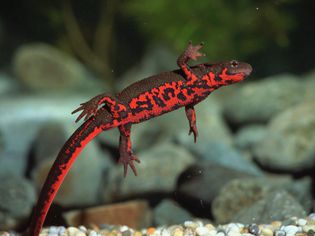
Fire Belly Newt: Species Profile
The Chinese fire belly newt (also called the oriental fire belly newt) and the Japanese fire belly ...
Read More →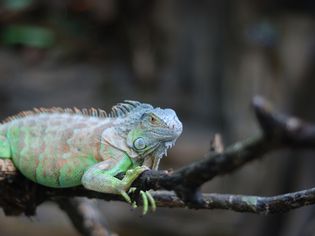
Iguana: Species Profile
Iguanas are one of the most popular pet lizards. They are native to Central and South America. Howe...
Read More →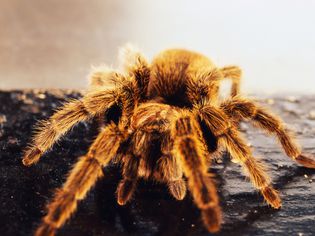
How to Care for a Pet Chilean Rose Tarantula
Chilean rose tarantulas are a popular pet tarantula species to keep. These spiders have bodies that...
Read More →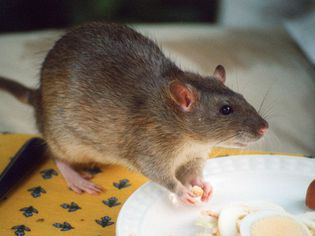
Feeding Pet Rats
Feeding pet rats is not difficult, but there are some important items to include when doing so. Spe...
Read More →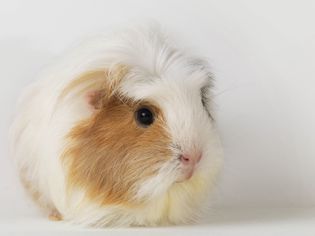
Guinea Pig Heat Cycles
Female guinea pigs have a uterus, like every other female mammal, that hasn't been surgically alter...
Read More →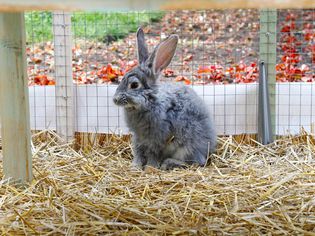
Reasons Why Rabbits Eat Their Own Poop
Rabbits, much like cats, are fastidious groomers and practice very good hygiene. They are often see...
Read More →
How to Keep Rabbits Cool in Summer
Rabbits are very active animals who love spending time outside in the summer and running around the...
Read More →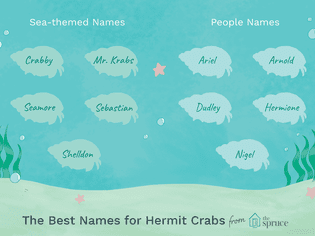
100 Names for Pet Crabs
Trust us: Make sure you pick a crab name that can go the distance with your pet. Why? Depending on ...
Read More →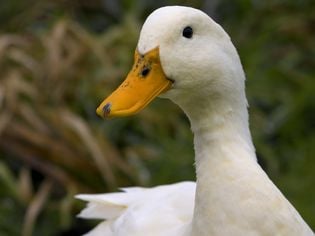
150 Fun and Unique Duck Names for Your Feathered Companion
Naming your pet duck is a fun experience, whether you have one duck, a pair, or an entire flock. A ...
Read More →
Comments on "Cystic Ovaries in Guinea Pigs" :